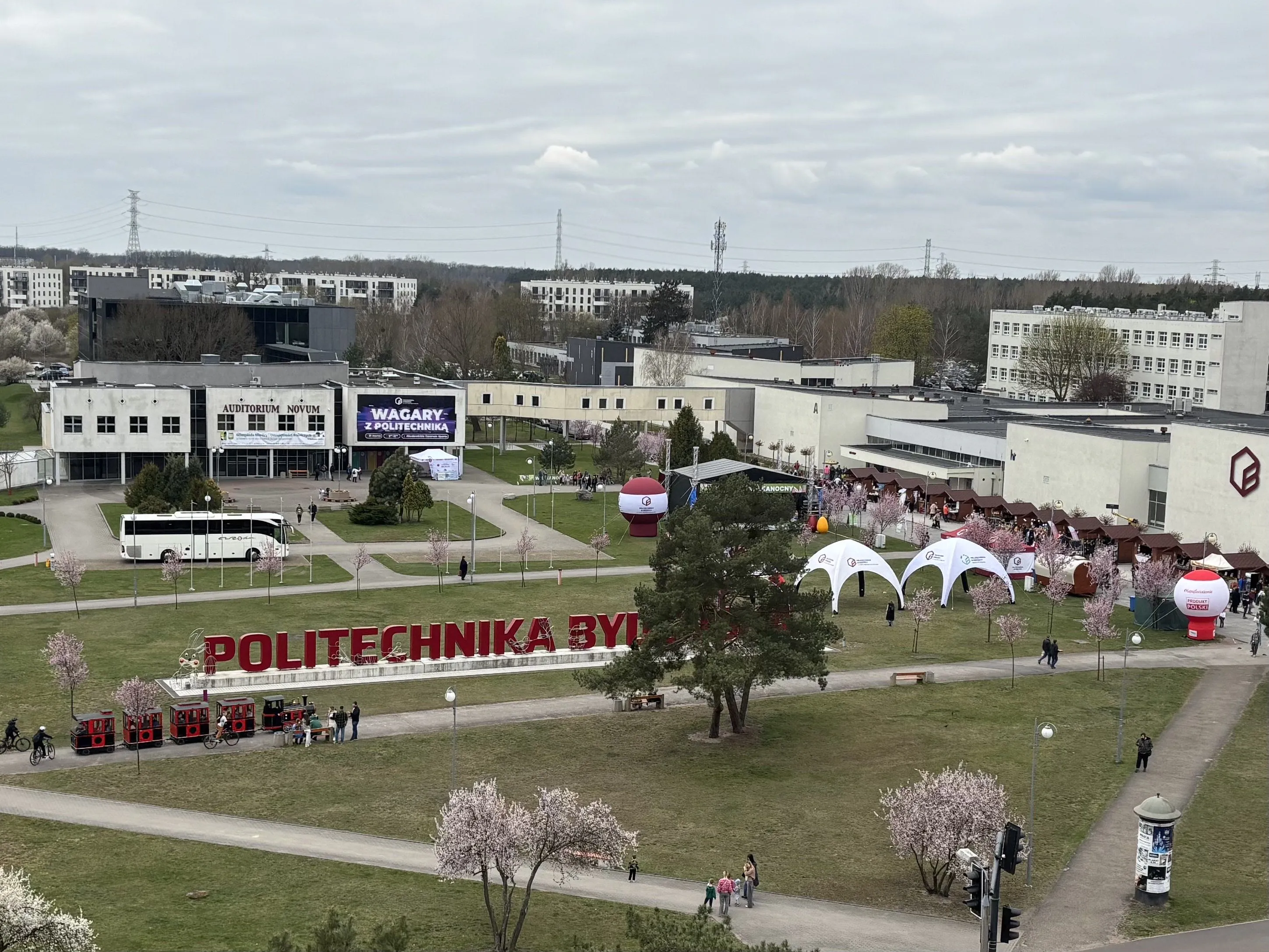Studying Computer Science in the Age of AI
Written by Błażej Drozd ~
Thoughts on what it's like to study CS in 2025—and how AI has changed everything.
Who am I?
I’m a computer science student. Or to be more specific - “applied computer science” - though what exactly is being “applied” still isn’t clear to me.
I’ve just finished my second year and I’m heading to Spain soon on an Erasmus+ exchange. In this article, I’d like to share my personal reflections on what studying computer science in Poland is really like—specifically at my university: Bydgoszcz University of Science and Technology.
Programming is more than just something I do. It’s something I love. Yes, love-genuinely. It gives meaning to my day-to-day. I can sit for hours writing code, building projects, debugging, reading docs. I love inventing, creating, learning.
So what happens when a computer can now do much of that for me—and often faster, better, and with fewer bugs?
Let’s talk about that.
Why I Chose to Study Computer Science
Before university, I attended a technical high school focused on IT. I picked up practical skills—hardware, networking, the basics. Math? Well, let’s just say one teacher managed to traumatize an entire class. But otherwise, the people I met were incredible, and our group was tight-knit.
After that, continuing into a CS degree felt natural. I loved coding, loved computers, and Bydgoszcz was close enough to home. It’s also relatively affordable, which sealed the deal. So I enrolled in “Applied Computer Science” at Bydgoszcz University of Science and Technology.
My University Experience
Let’s start with the school itself. The branding is strong—really strong. “Bydgoszcz University of Science and Technology” sounds impressive. Say you’re studying at a “technical university” and your aunt will be amazed. HR departments outside the tech world? Same reaction.
That reputation is mostly thanks to our current rector. Despite some recent PR mishaps (like the infamous luxury university car), he’s done a great job turning a standard university into something that feels more prestigious. They’re selling hoodies, tote bags, mugs—it’s a whole brand now. And honestly? 9/10 for external image.

How We’re Taught
There are three main formats for classes:
- Lectures
- Labs
- Projects
There are other formats, but they’re usually just variations on these.
Lectures
Lectures were the absolute worst part of my first year. They were mandatory, so we all went—and suffered. Except for one exception: math.
Huge shoutout to Dr. Paulina Grzegorek, our math lecturer. She was the only one who actually understood how to teach. Clear structure, engaging delivery, pedagogically sound. Brilliant.
Most other lectures? Slides. Endless slides. Read aloud in a monotone, with occasional jabs at students for asking questions. In some cases, outright mockery. Yes—mockery. It was unacceptable.
And the exams? Either impossibly hard (with no real correlation to the content covered), or so trivial that anyone could pass after five minutes with toilet-paper notes. There was no middle ground.
The lecturers clearly had academic experience and deep knowledge—but teaching? That’s a different skill entirely. And many didn’t have it.
In year two, lectures became optional. Attendance dropped to maybe 20%. I stopped going entirely. Instead, I used that time to build projects, learn on my own, and just… grow. And guess what?
I still passed everything.
Labs
Labs are the practical side of things. We get task sheets (sometimes poorly written) and work through them during class. If you’re lucky, the instructor will let you tweak things and add your own improvements.
Labs were hit or miss, but generally better than lectures. Some were even genuinely challenging—in a good way.
We submit lab reports for everything. Yes, even for simple “Hello World” apps. And those reports? They’re strictly deadline-driven. Usually two weeks to turn them in, or your grade drops.
I actually liked that structure. You’re free to use whatever format you want—Word, Google Docs, Markdown, LaTeX. I tried them all. Eventually settled on LaTeX.
Projects
Projects are basically the same as lab classes, except there’s just one big assignment instead of many small ones. The instructor acts as a simulated client, sets the requirements, and holds meetings to review our progress.
Just like with labs, what really gets graded here is how consistently and punctually you work, rather than how much you actually know.
What We Actually Learn (Hint: Not Much Computer Science)
Here’s the core of my argument: university doesn’t teach you computer science. Not really. This isn’t to say that fundamentals like algorithms and data structures aren’t important—they are essential. The problem is that university often presents this crucial knowledge in the most abstract, uninspiring way possible, completely disconnected from the practical problems we are excited to solve.
What it does is test whether you already know it—or can figure it out. That’s a very different thing.
You’re expected to deliver work on time, meet certain vague quality thresholds, and pass exams. But the learning? That’s on you.
No one’s guiding you through the material. If you don’t teach yourself, you fall behind—fast.
University does teach one important thing: how to survive socially. If you don’t make friends, you’re doomed. This isn’t something you can power through alone—not without burning out. And burnout is very real here.
How AI Changed My Student Life
AI made writing reports way easier. Better grammar, clearer structure, faster feedback—no more typos or weird sentence constructions. That part was a massive win.
But it also made coursework harder in another way.
Professors know we’re using AI tools like ChatGPT or GitHub Copilot. Some have started giving much harder assignments in response—clearly designed to trip up an AI. Others don’t care and have quietly accepted the new reality.

For me, AI became essential. It sped up research, helped me write, debug, even explained confusing concepts. It’s like having a tutor on-call 24/7.
Final Thoughts: Should You Study CS at All?
Honestly? I don’t think it’s worth it. Not here, at least. While my experience comes directly from Bydgoszcz, conversations with friends from other Polish universities, even those considered top-tier, suggest that many of these issues—like outdated lecture formats and a disconnect from the industry—are surprisingly common, though perhaps to varying degrees.
If you’re curious and motivated, you can learn everything online—free. Want to build web apps? Games? Machine learning models? It’s all on YouTube, free courses, tutorials, open-source projects. And it’s better than most university material.
Some people say: “But what about the engineering degree?” Sure. You get a piece of paper. But if you’re planning to be a developer, no one cares. Recruiters want to see your portfolio. Your GitHub. Your projects. Your thinking.
Unless you’re aiming for a research or teaching career, I’d say: skip the full-time CS degree.
If you really want the diploma, do it part-time. Free up your days to build cool stuff, earn money, or freelance.
University’s true, hidden value lies in the people. The friends you struggle with through late-night lab reports might become your future co-founders. The one brilliant professor you find can become a mentor for life. This network is invaluable, but you have to build it proactively—the curriculum won’t do it for you.
But at 20–23 years old, most of us want to build. We want to work. We want to ship code. Not spend four years preparing for an exam from someone who stopped programming a decade ago.
And that’s the reality in 2025.